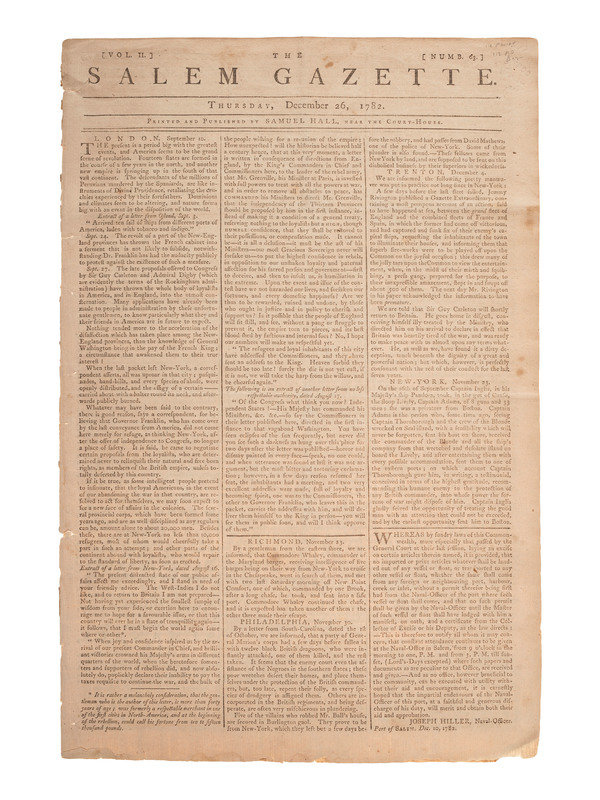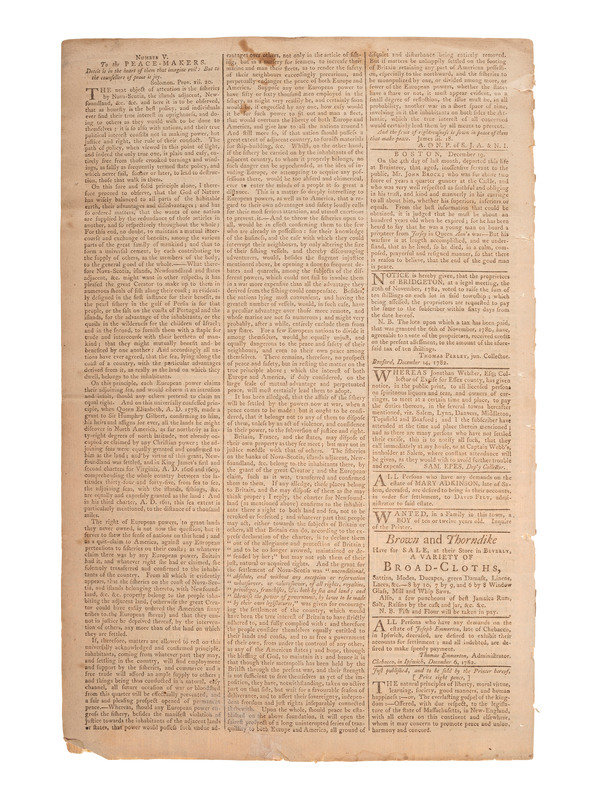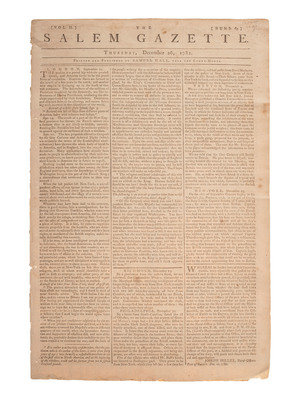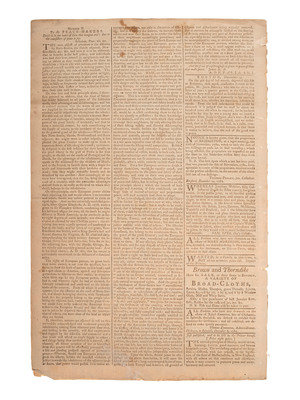Condition Report
Contact Information
Auction Specialist
Lot 23
[REVOLUTIONARY WAR]. The Salem Gazette. Vol. II, No. 63. Salem, MA: Samuel Hall, 26 December 1782.
Sale 1046 - American Historical Ephemera and Photography Featuring the Civil War and American Militaria Collection of Bruce B. Hermann
Lots 1-296
Jun 21, 2022
10:00AM ET
Lots 297-560
Jun 22, 2022
10:00AM ET
Live / Cincinnati
Own a similar item?
Estimate
$800 -
1,000
Price Realized
$500
Sold prices are inclusive of Buyer’s Premium
Lot Description
[REVOLUTIONARY WAR]. The Salem Gazette. Vol. II, No. 63. Salem, MA: Samuel Hall, 26 December 1782.
4pp., folio, 9 1/2 x 14 3/4 in. Disbound (minor toning, occasional brown spots). Revolutionary War newspaper containing front-page coverage of Colonel Francis Marion's exploits in South Carolina against the British. Also includes a front-page report of the Battle of the Barges (Battle of the Kedges, 30 November 1782) between naval militia from Maryland and the Royal Navy. Over a year had passed since Cornwallis' October 1791 surrender at Yorktown, however, intermittent conflict at sea continued.
For two days in late November 1782, Commodore Zedechiah Whaley of the Maryland militia had been waging an indecisive battle during a campaign against British barges of war that had been harassing the shores and farms of Chesapeake Bay. On 28 November, he sailed up Onocock Creek and appealed to Lt. James Cropper, who responded by recruiting 25 local men who joined the crew of Whaley's flagship, the Protector. During the battle, 3 of 4 of Whaley's barges were forced back under heavy fire, leaving the Protector to attack 6 British craft. Vastly outnumbered, its crew suffered heavy losses during a climactic action on 30 November 30, with 25 casualties and 29 captured, with only 11 escaping. Whaley's surrender ended the last naval action of the Revolution.
___________________________________________________
Known as the "Swamp Fox," Francis Marion (ca 1732-1795) was a military officer who served in the Revolutionary War. Acting with the Continental Army and South Carolina militia commissions, he was a persistent adversary of the British in their occupation of South Carolina and Charleston in 1780 and 1781, even after the Continental Army was driven out of the state in the Battle of Camden. Marion used irregular methods of warfare and is considered one of the fathers of modern guerrilla warfare and maneuver warfare, and is credited in the lineage of US Army Rangers and the 75th Ranger Regiment.



